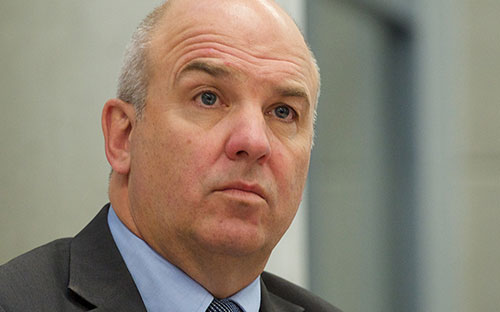"Human rights compliant legislation requires time and thorough consultation” said the Council of Europe Commissioner for Human Rights, Nils Muižnieks, at the end of a four-day visit to Poland reviewing the effectiveness of the country's framework for the protection of human rights, the administration of justice as well as gender equality and women's rights. Referring to several laws hastily adopted by the Polish parliament in recent months and impacting on, inter alia, media freedom and the right to privacy, the Commissioner strongly urged the authorities to secure the public debate that is required in a democratic society when considering changes in such vital human rights areas.
While insufficient public consultation is not a new phenomenon in Poland, the Commissioner's concerns were heightened by the fact that an essential element of Poland's framework for the protection of human rights is currently unable to function. "The paralysis of the Constitutional Tribunal bears heavy consequences for human rights of all Polish citizens. The Polish authorities must find a way out of this situation by fully abiding by the rulings of the Constitutional Tribunal and the opinion to be adopted soon by the Council of Europe’s Venice Commission. There can be no real human rights protection without mechanisms guaranteeing the rule of law, in particular by ensuring checks and balances among the different state’s powers."
"Other human rights protection mechanisms should also be strengthened" stressed the Commissioner, noting with concern the planned reduction of the budget of the Polish Commissioner for Human Rights. Also, referring to a draft law on the procedure to lift the immunity of the Commissioner for Human Rights and the Commissioner for the Rights of the Child, Commissioner Muižnieks warned that the independence of these two institutions may be endangered if the future law does not contain all the necessary safeguards and called on the Polish authorities to take on board the recommendations issued by the Office for Democratic Institutions and Human Rights of the OSCE in this respect to avert that risk.
The Commissioner also expressed concerns at the adoption in December 2015 of transitional legislation in the field of public service media, pending the adoption of a wider reform in this area, expected before the summer 2016. “Placing public service media under direct government control by giving the latter the powers to appoint and dismiss the members of the supervisory and management boards of public service television and radio contradicts Council of Europe standards which notably require that public service media remain independent of political or economic interference.” The Commissioner strongly encouraged the Polish authorities to consult the civil society, the Council of Europe as well as all national and international partners when drafting the announced reform. This would help the authorities not only to address long-standing shortcomings in the functioning of public media but also to redress the new controversial legislative steps. By all means, strong safeguards to protect the independence and pluralism of public media enabling it to play its role of a watchdog in a democratic society should be put in place.
One of the issues of concerns of Commissioner Muižnieks relates to the amendments brought to surveillance legislation and signed into law by the President of Poland on 2 February. “While it was important to take steps to implement the July 2014 ruling of the Constitutional Tribunal asking for filling serious loopholes in the oversight of surveillance activities, I am concerned that the new provisions are expanding the powers of police and special services without establishing the corresponding safeguards for the protection of the right to privacy, journalistic sources and information covered by professional secrecy. The current powers to access telecommunication and internet data and the democratic and judicial oversight system of surveillance activities should be reviewed to bring them fully in line with the European Convention on Human Rights as interpreted by the European Court of Human Rights in recent months” said the Commissioner.
As concerns women’s rights and gender equality, the Commissioner welcomed the ratification by Poland of the Council of Europe Convention on preventing and combating violence against women and domestic violence in April 2015. “Now it is time to translate international commitments into concrete measures to tackle domestic violence, including by allocating adequate and sustainable funds to ensure the proper running of shelters for women victims of violence" said the Commissioner after visiting a shelter and a counseling centre for women victims of domestic violence, run by an NGO in Warsaw. “Currently in Poland, negative stereotypes against women among police officers, prosecutors and judges seriously hamper women’s equal access to justice and jeopardise progress in women’s rights. This situation can be reversed through measures to raise awareness and train relevant stakeholders including medical staff in contact with women victims of violence.



